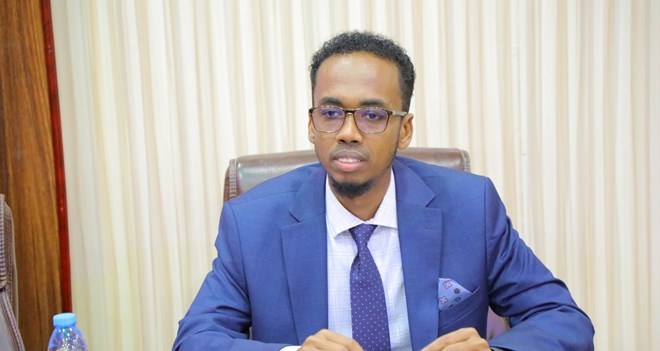
Friday June 9, 2023

Mogadishu (HOL) - Somali police forces have arrested Abdullahi Mohamed Ali, the Director-General of the Ministry of Labor and Social Affairs, on charges of corruption and neglect of public property on Friday.
The office of the Attorney General confirmed that Ali would be brought before the court to face these charges, although specific dates for the trial have not yet been announced.
Under President Mohamud's watch, his initial term was plagued with allegations of public corruption. In response, the president
endorsed legislation earlier in May to amplify transparency and accountability in the management of Somalia's financial resources. The newly introduced laws, passed by a cabinet helmed by Prime Minister Hamza Abdi Barre, specifically target public corruption.
Somalia's ongoing struggle with corruption is underscored by its consistent low rankings in the Corruption Perceptions Index, an annual report released by Berlin-based watchdog Transparency International. From 2007 to 2020, Somalia held the regrettable position at the bottom of the index for 13 consecutive years. In 2021, it was briefly outpaced by Syria and Sudan in this dubious distinction. However, the 2022 Corruption Perceptions Index (CPI) once again placed
Somalia as the world's most corrupt country, with a dismal score of just 12 out of 100.
This past October, President Mohamud issued a Presidential decree
dissolving both the Judicial Service Commission and the Anti-Corruption Commission. Claiming the selection process was not in line with the provisional constitution, he directed parliament to appoint new committees. Following the same line in November,
he disbanded the National Independent Elections Commission and the Federal Boundaries Commission.
Recently, the government has amplified its anti-corruption efforts by beginning inspections of government offices. The objective is to foster a culture of transparency and accountability among civil servants.
A detailed analysis of corruption in Somalia highlights several entrenched issues contributing to instability and economic stagnation, including the absence of strong institutions, widespread corruption within the police and security forces, lack of regulation, market competition, challenges in land administration, and revenue collection. The country is still reeling from the collapse of state institutions in 1991, an event that enabled patronage networks to take control of the economy and perpetuate a climate of corruption.